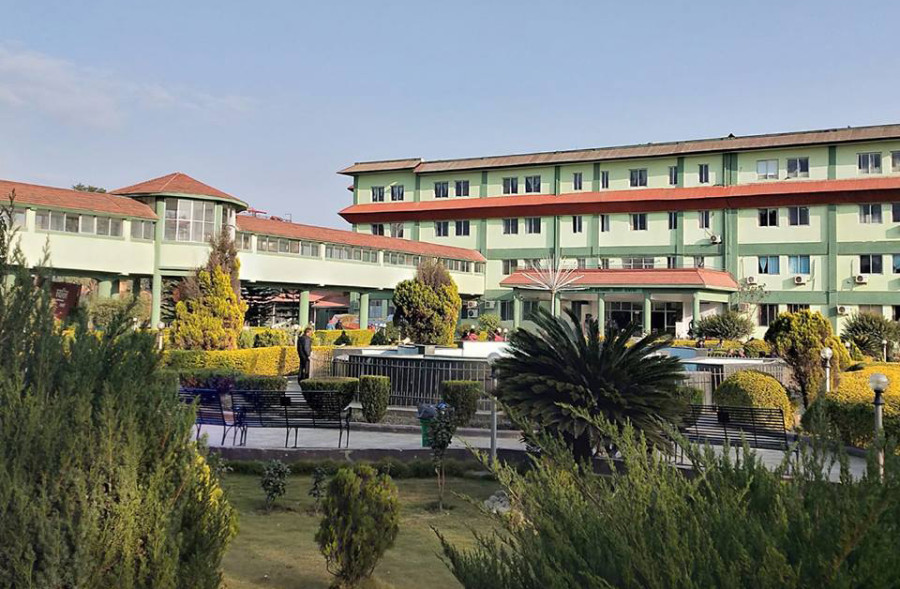National
Death of a child due to blood mismatch raises concerns over top heart centre’s safety protocols
The death of a young girl at Shahid Gangalal National Heart Center, allegedly due to an acute hemolytic transfusion reaction, has raised serious concerns over safety procedures at the country’s leading cardiac centre.
Arjun Poudel
The death of a young girl at Shahid Gangalal National Heart Center, allegedly due to an acute hemolytic transfusion reaction, has raised serious concerns over safety procedures at the country’s leading cardiac centre.
Five-year-old Aakriti Kumari Sah of Sisaudiya Municipality in Sarlahi district was discovered to have a double-chambered right ventricle, a rare congenital heart condition, and was admitted to the hospital on April 26. She underwent surgery on April 30 and died the same day, allegedly due to a mismatch in her blood group. Hospital officials blamed a “clerical error”.
“We have formed a four-member team to investigate and find the cause of death of the patient,” Dr Jyotindra Sharma, executive director at the hospital, told the Post. “Appropriate action will be taken against those found guilty.”
Copies of the hematology report obtained by the Post show Sah’s blood type as ‘O’ positive. However, relatives were asked to arrange for ‘A’ positive blood, according to a copy of the prescription seen by the Post.
“This seems to be sheer negligence on the part of hospital staff on multiple layers,” Dr Harischandra Upreti, former director at the National Public Health Laboratory, told the Post. “Even if the lab had identified one particular blood group and asked to arrange for another, why did the doctors involved in surgery not cross-match the blood type, which is normal practice, before transfusing the blood?”
Verifying the blood group—by reading the labels on the blood packet and the lab report—and making certain they match is a widely accepted general rule in medicine.
Acute hemolytic transfusion reaction is a serious complication that occurs after blood transfusion, when there is a mismatch in blood group types between the recipient and donor. However, doctors say that transfusion reactions are rare these days as all blood is carefully screened.
“There seems to have been a serious lapse,” said Upreti. “Duty officers must have verified the group before transfusion.”
The family of the deceased has charged the hospital and its doctors with negligence and refused to accept the dead body. The family has also demanded compensation.
“The authorities asked us to take the body, but we refused,” said Surendra Yadav, a relative of the victim.
Meanwhile, the Nepal Voluntary Blood Donors Society, an organisation formed by youth volunteers to help those in need of blood, said it was shocked by the death of a five-year-old girl due to negligence on the part of hospital staffers.
Issuing a press release on Monday, Prem Sagar Karmacharya, president of the society, demanded stern action against those responsible.
Earlier in February, in another case, the Shahid Gangalal laboratory had identified two contradicting blood groups—‘A’ positive and ‘A’ negative—for the same patient.
Doctors at the hospital had asked relatives to arrange for ‘A’ negative blood, but a blood group mismatch during cross-verification had led to the operating being postponed.




 9.7°C Kathmandu
9.7°C Kathmandu














